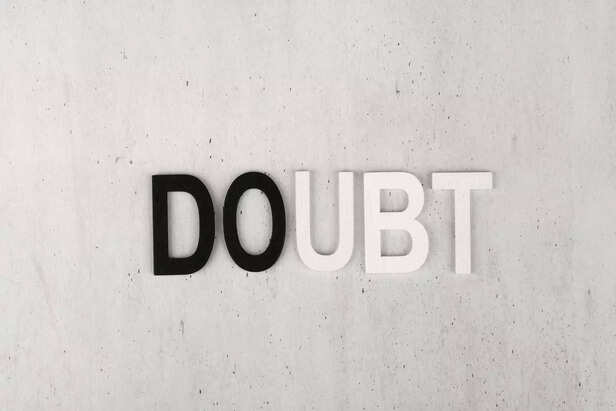Don’t Trust People Who Praise You - Chanakya Niti
Riya Kumari | Jul 16, 2025, 13:41 IST
( Image credit : Times Life Bureau, Timeslife )
Let’s talk about overpraisers, those shiny, syrupy humans who seem to drip admiration like it’s their job. And maybe it is. Because here’s the thing about flattery: when it’s genuine, it’s rare, quiet, and a little awkward. Real praise? It’s the friend who texts you three days after your meltdown to say, “Hey, I admire how you handled that.”
Let’s start with something no one tells you out loud: The most dangerous person in your life is not the one who insults you. It’s the one who praises you before they know you. Sounds extreme? It isn’t. It’s just uncomfortable to admit. Because we all want to be liked. We crave recognition. And when someone gives us that, without effort, without delay, without reason, we take it as proof of our worth. But here's what Chanakya knew 2,300 years ago and modern psychology now backs up: Premature praise is often a form of emotional grooming. It’s not love. It’s not admiration. It’s control, disguised as warmth.
Praise Is Not a Gift. It’s a Lever

You know what smart manipulators never do? They never start with fear. They start with flattery. Because fear makes you defensive. Praise makes you open. And openness is access. That’s why the person who calls you “brilliant,” “rare,” “irreplaceable” in the first few interactions is not always complimenting you. They're scanning you.
The Most Strategic Betrayals Come Dressed in Worship

There’s a pattern that shows up in toxic relationships, high-level power games, even in workplace politics:
Chanakya warned against exactly this. Not because he was cynical, but because he understood power. He knew praise, in the wrong hands, is a social weapon, one that doesn’t destroy your reputation, but your clarity.
True Praise Feels Awkward. False Praise Feels Addictive

Here’s how you know the difference:
The Smarter You Are, the More You’re at Risk

Here’s the twist: intelligent, capable people are often the easiest to flatter. Why? Because you know you’re sharp. So when someone sees it, you think: Ah, finally, someone who gets me. But that’s exactly what a strategic flatterer counts on. They don’t challenge your intellect. They echo it. They mirror your values, your ambitions, your insecurities. And because they reflect back a version of you that you like, you trust them.
Not because they’re trustworthy. But because they make you feel like you’re finally being understood. That’s not connection. That’s psychological manipulation through idealized mirroring. And it’s one of the oldest tricks in the emotional predator’s playbook.
Chanakya’s Wisdom: If It Feels Too Good, Question It

Chanakya didn’t tell us not to enjoy praise. He told us not to believe it blindly. Because the smarter the praise, the more it’s weaponized. The more customized it is to your wounds, your wants, your missing validations, the more it’s dangerous. “He who flatters you excessively is either after something or covering something up.”
Every time someone flatters you, ask yourself:
Your Enemy Isn’t the Insult. It’s the Untested Compliment
Because the most brilliant people fall hardest. Not from hate. But from love that wasn’t love. Just strategy, dressed in sweetness.
Praise Is Not a Gift. It’s a Lever

False praise
( Image credit : Unsplash )
You know what smart manipulators never do? They never start with fear. They start with flattery. Because fear makes you defensive. Praise makes you open. And openness is access. That’s why the person who calls you “brilliant,” “rare,” “irreplaceable” in the first few interactions is not always complimenting you. They're scanning you.
- They're watching how fast you melt.
- How badly you need it.
- How quickly you trust.
The Most Strategic Betrayals Come Dressed in Worship

Loyal
( Image credit : Unsplash )
There’s a pattern that shows up in toxic relationships, high-level power games, even in workplace politics:
- First, they overvalue you.
- Then, they expect loyalty.
- Finally, they punish distance.
Chanakya warned against exactly this. Not because he was cynical, but because he understood power. He knew praise, in the wrong hands, is a social weapon, one that doesn’t destroy your reputation, but your clarity.
True Praise Feels Awkward. False Praise Feels Addictive

Lovers
( Image credit : Unsplash )
Here’s how you know the difference:
- Real praise is earned, not offered freely. It’s slow. Often private. Sometimes imperfect.
- Manipulative praise is immediate, exaggerated, and frequent. It sounds good, but it feels just a bit too perfect.
The Smarter You Are, the More You’re at Risk

Hug
( Image credit : Pexels )
Here’s the twist: intelligent, capable people are often the easiest to flatter. Why? Because you know you’re sharp. So when someone sees it, you think: Ah, finally, someone who gets me. But that’s exactly what a strategic flatterer counts on. They don’t challenge your intellect. They echo it. They mirror your values, your ambitions, your insecurities. And because they reflect back a version of you that you like, you trust them.
Not because they’re trustworthy. But because they make you feel like you’re finally being understood. That’s not connection. That’s psychological manipulation through idealized mirroring. And it’s one of the oldest tricks in the emotional predator’s playbook.
Chanakya’s Wisdom: If It Feels Too Good, Question It

Doubt
( Image credit : Pexels )
Chanakya didn’t tell us not to enjoy praise. He told us not to believe it blindly. Because the smarter the praise, the more it’s weaponized. The more customized it is to your wounds, your wants, your missing validations, the more it’s dangerous. “He who flatters you excessively is either after something or covering something up.”
Every time someone flatters you, ask yourself:
- Do they gain something from this belief I now have about myself?
- Would they still say this if I stopped being useful to them?
- Have they seen enough of me to even mean what they’re saying?
Your Enemy Isn’t the Insult. It’s the Untested Compliment
- Be strong enough to hear praise without needing it.
- Be wise enough to question the people who give it too easily.
- And be ruthless enough to walk away from anyone who confuses admiration with access.
